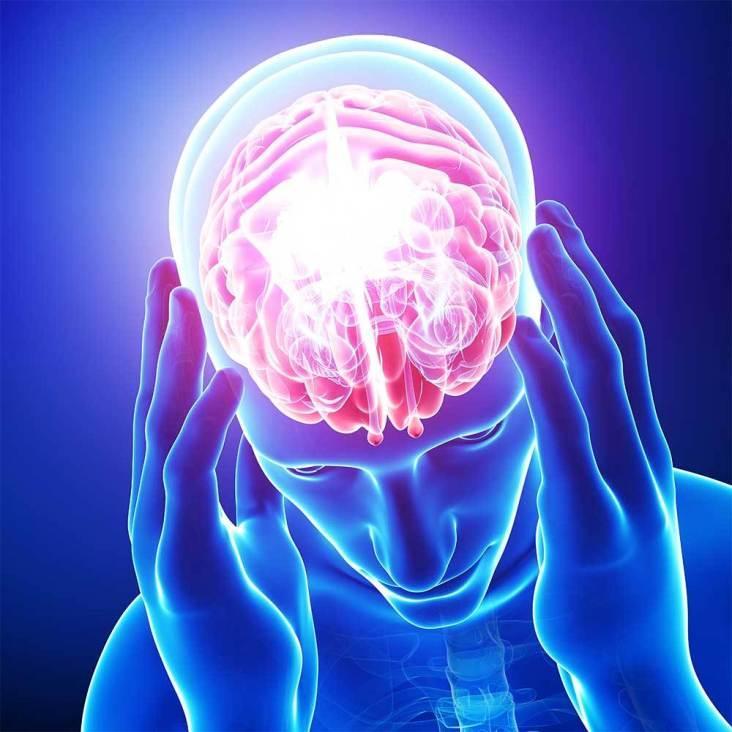Concierge TMS (Transcranial Magnetic Stimulation) stands as a non-invasive method of neuromodulation, employing magnetic fields to activate nerve cells within the brain. Extensively researched and applied, it has found utility in addressing various mental health conditions, with a primary focus on treating major depressive disorder (MDD).
Table of Contents
Concierge TMS Mechanism of Action
Concierge TMS operates by generating magnetic fields that traverse the skull, leading to the production of electrical currents within the brain. These currents, in turn, serve to regulate neuronal activity. The application of high-frequency TMS is associated with an increase in neuronal activity, while low-frequency TMS is believed to have inhibitory effects.
Indications
TMS has gained FDA approval as a therapeutic intervention for major depressive disorder (MDD) among individuals who have exhibited inadequate responses to conventional antidepressant medications. This recognition underscores its significance as an alternative approach in addressing treatment-resistant depression. However, the scope of TMS extends beyond MDD, prompting ongoing research endeavors to unravel its potential efficacy for a spectrum of mental health conditions.

Current investigations delve into the applicability of TMS in treating anxiety disorders, bipolar disorder, and schizophrenia. The exploration of TMS as a potential intervention for these diverse mental health challenges reflects a growing interest in expanding its clinical utility. Preliminary findings suggest that the neuromodulatory effects of TMS on brain activity could have relevance across different psychiatric disorders, paving the way for innovative therapeutic strategies. As research advances, a more comprehensive understanding of TMS’s impact on various mental health conditions is anticipated.
Impact on Brain Function
TMS exerts its influence on neural circuits and connectivity within the brain, with a specific focus on regions linked to mood regulation and emotional processing. Emerging research indicates that TMS has the potential to induce alterations in neurotransmitter levels, particularly demonstrating an increase in serotonin and dopamine. These neurotransmitters play pivotal roles in mood regulation, underscoring the significance of TMS in modulating neurochemical processes associated with emotional well-being.

The impact of TMS on neural circuits provides a window into its therapeutic mechanisms, suggesting that the technique may induce changes at both the structural and chemical levels. The observed elevation in serotonin and dopamine levels aligns with established theories on the neurobiology of mood disorders, further supporting TMS’s potential as a targeted intervention for conditions characterized by disturbances in mood and emotional processing.
Treatment Protocol
Typically, TMS treatment is delivered across a series of sessions, commonly scheduled five days a week over several weeks. Each session has a duration of approximately 20-40 minutes. The variability in the treatment course duration is contingent upon individual responses, with healthcare providers tailoring the schedule based on the specific needs and progress of the patient. This structured approach to TMS administration aims to harness the cumulative effects of repeated sessions over time.

The frequency and duration of the sessions are carefully calibrated to optimize the therapeutic benefits while considering the unique characteristics and responsiveness of each individual undergoing TMS treatment. The flexible nature of the treatment duration underscores the personalized aspect of TMS therapy, allowing healthcare professionals to adapt the course based on observed outcomes and patient experiences. This tailored approach enhances the potential for positive treatment outcomes and underscores the importance of individualized care in the application of TMS for mental health conditions.
Side Effects
TMS is widely regarded as a safe and well-tolerated therapeutic intervention. Commonly reported side effects are generally mild and include scalp discomfort or headaches at the treatment site. These transient and localized discomforts are often manageable and tend to diminish as the course of treatment progresses. It’s important to note that serious side effects, such as seizures, are rare but considered potential risks associated with TMS.
Healthcare professionals closely monitor patients during sessions to minimize any adverse reactions. The overall safety profile of TMS has contributed to its acceptance as a viable option, particularly for individuals with major depressive disorder who may not have responded well to traditional antidepressant treatments. Nevertheless, thorough screening, monitoring, and adherence to established safety protocols remain integral components of ensuring the well-being of individuals undergoing TMS therapy.
Effectiveness
TMS has demonstrated effectiveness in treating certain individuals with treatment-resistant depression, providing a promising alternative for those who have not responded adequately to standard antidepressant therapies. However, it is important to note that response rates can vary, and TMS may not be universally beneficial for everyone. The degree of improvement experienced by individuals undergoing TMS is also subject to considerable variability from person to person.
Factors such as the specific characteristics of the depressive symptoms, individual brain anatomy, and other personalized factors may contribute to the diverse responses observed. Healthcare providers carefully assess and monitor each patient’s progress during the course of TMS treatment, making adjustments as needed to optimize therapeutic outcomes. This recognition of individual variability emphasizes the importance of personalized and patient-centered approaches in determining the efficacy of TMS for treatment-resistant depression.
Research and Ongoing Studies
Continued research is actively exploring the application of TMS across a spectrum of mental health conditions, indicating a dynamic and evolving field. Investigators are delving into the determination of optimal stimulation parameters, seeking to refine and customize TMS protocols for enhanced efficacy. Additionally, researchers are engaged in identifying biomarkers that could serve as indicators of treatment response, aiding in the development of more targeted and personalized therapeutic approaches.
Moreover, there is a concerted effort to understand the long-term effects of TMS, assessing its durability and sustained impact on mental health conditions. This comprehensive exploration reflects the commitment to advancing the understanding and application of TMS beyond its established uses, fostering a nuanced comprehension of its potential benefits and limitations. As the research landscape continues to unfold, ongoing discoveries may contribute to further optimizing TMS as a valuable tool in the broader context of mental health treatment.


